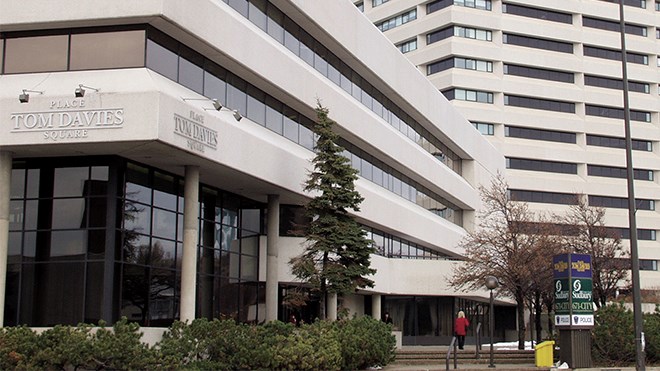A plan to change city policy and allow rural land owners to split and sell more of their property for residential development has been put on hold for a couple of months.
The change, approved by the previous city council in 2013, would allow landowners to split their lots into six, rather than three, reduce the minimum size from five hectares to two, and reduce the minimum frontage required.
It's something that landowners in rural parts of the city have wanted for years, and has been championed by Ward 4 Coun. Evelyn Dutrisac.
“People in Greater Sudbury are different than people in North Bay, than people in Sault Ste. Marie, in Timmins, in Barrie, in Toronto,” Dutrisac said at the 2013 meeting. “
“Why would we not have a choice? We don't live in a communist country. We live in a democratic country.
The amendment came to planning committee for approval Monday as part of the lengthy process of updating the city main planning policy document, the Official Plan.
Ward 7 Coun. Mike Jakubo flagged the issue Monday, asking what the financial impact on the city would be if councillors approved it.
"If we see more rural lot development ... those are more areas that do have to be serviced that are not in the urban setting,” Jakubo said. “There are costs associated with that. Another train of thought is, the more lots we have going, and the more construction we have going, the more tax revenue we'll have."
Planner Kris Longston said the change would significantly increase residential development on rural lands. But under the Provincial Policy Statement, a guide all cities must follow, municipalities are supposed to limit development on rural lands to guard against sprawl and to make existing services more affordable.
"To increase those substantially, I would have difficulty to see how that would meet the definition of limited in the PPS," Longston said.
Jakubo said he wanted to know what the long-term financial implications would be for the city before voting on the motion.
"Not all development is equal when it comes to what it will cost us in the end to service a lot, whether it's in an urban setting or a rural setting," he said.
Councillors were promised a staff report on the "difference in costs of development in different parts of the city,” he said.
"When is that report coming?"
Jason Ferrigan, the director of planning services, said the report will be ready this summer. It will detail the net cost of development in different parts of the city – the cost of growth report is what they're calling it.
He pointed out that in their opinion, the change is not a good idea.
"This is not recommended by planning services staff,” Ferrigan said. “We had presented several reports to planning committee and council over the years, going all the way back to 2009, looking at this question. In every case, we recommended that the policy not be changed."
Staff believes it goes against the PPS and the goals of the city's own Official Plan.
"We were directed by council to include this policy change," he said. "And we accepted that direction."
So Jakubo moved to delay the vote on the change until the report is ready.
"I'd like to afford this council the opportunity to see all of that information prior to accepting this amendment the way it is," he said. "That information is important in terms of informing what happens with this draft amendment."
